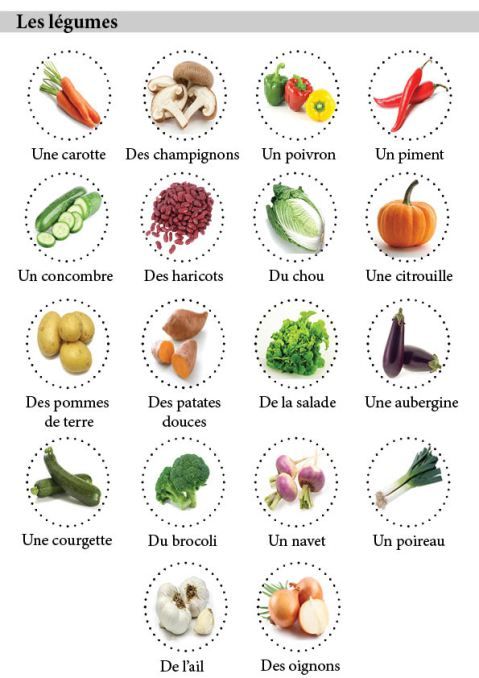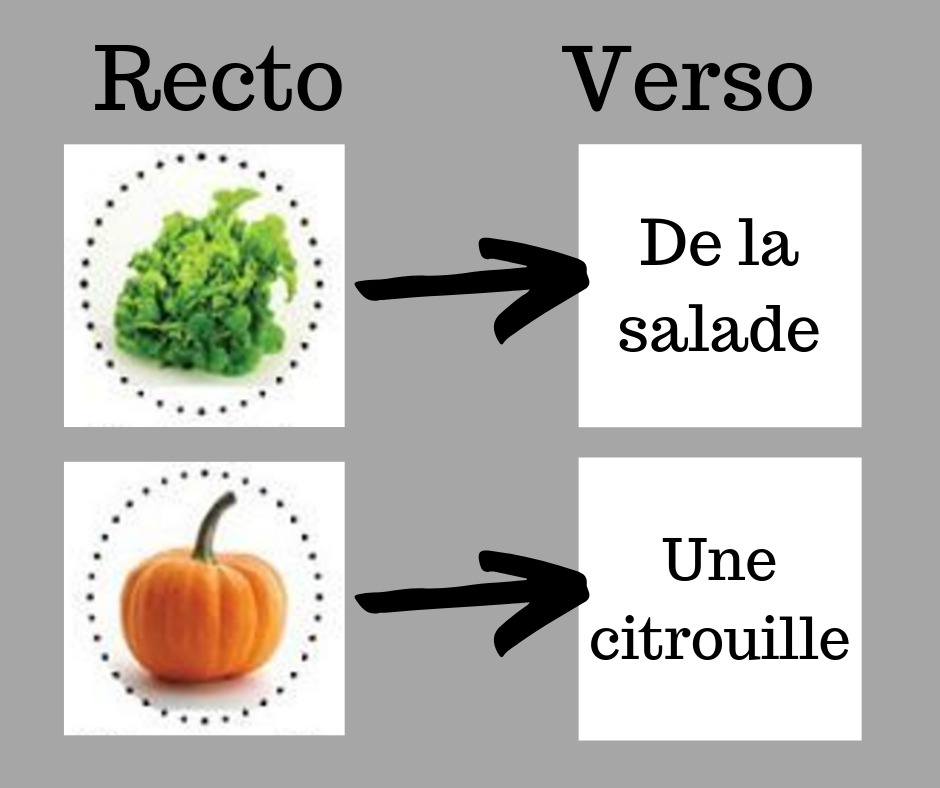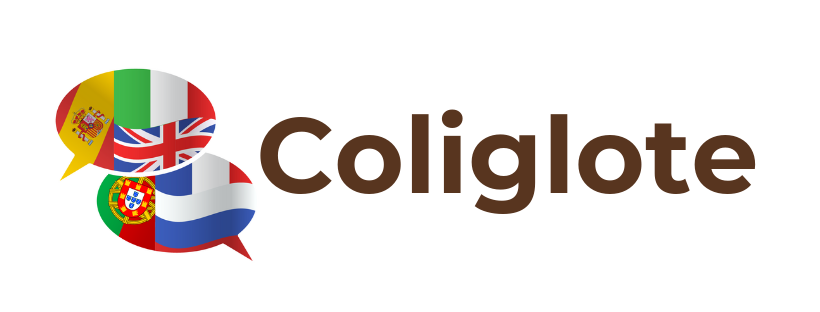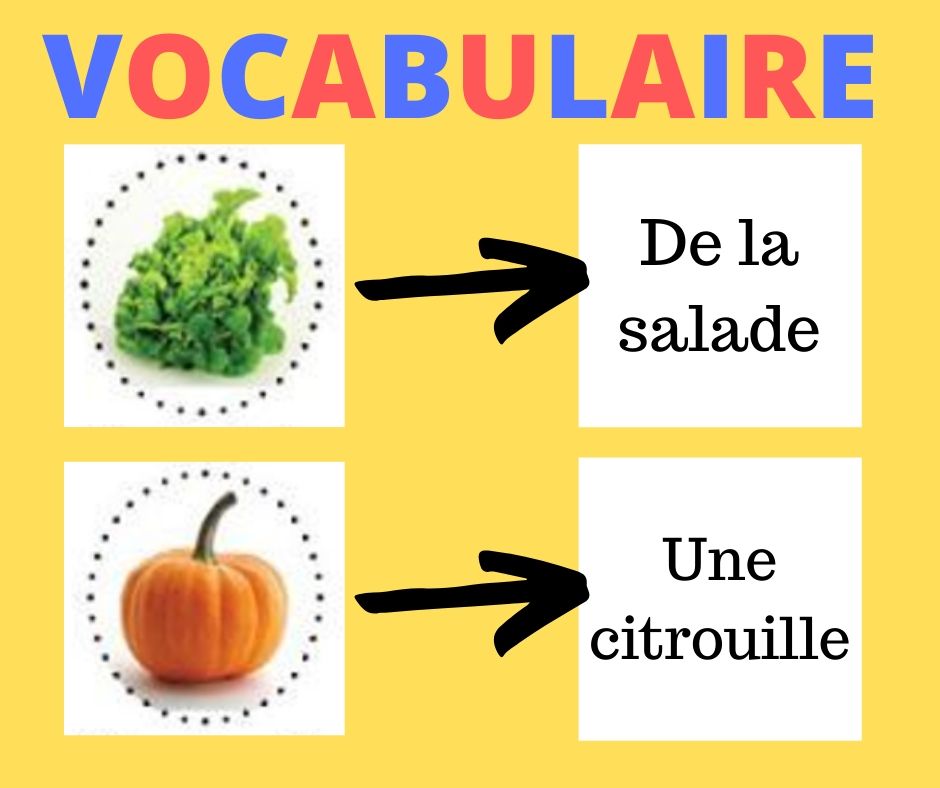Memorization is the key to success in learning a language because it’s the first skill needed for learning. But sometimes we are tired, saturated and the exercise seems too dfifficult. This is why it can be useful to use certain memory techniques that allow you to continue to progress without getting discouraged!
1. MAKE THEIR VOCABULARY RECORDS
It is a question of listing and grouping together all the words encountered on a certain theme on a card. The best thing to do is to be able to picture this card! Take your pencils or your keyboard…
Example :
Vegetables in French

It is a very effective way to retain new vocabulary because the words will be linked together by meaning and you will have less difficulty remembering them, especially thanks to the visual support of the image that will serve to support memory.
2. MAKE “FLASH CARDS” (MEMORY CARDS)
This is a visual memorization technique that is again based on images. It’s very simple: you make cards with on the front side an image, and on the back side the written word.
Example :

First try to memorize them by looking freely at both sides of the card. Then put all the cards on a table, face up, and say as many words as possible. Every time you find the word, you win the corresponding card. In the end, you only have the most difficult words left that you will learn in this fun way.
In the Coliglote application, the image-based storage technique is particularly present to help you as much as possible.
(Note: it is also possible to practice your spelling in the same way! Instead of saying the words, you write them down.)
3. REPEAT VOCABULARY ALOUD
So for my part, I noticed something very interesting in foreign languages. You are able to recognize a written word you have encountered many times (for example in a book) and not even be able to remember it 5 minutes later! This is because this word and its meaning have been assimilated into a certain context and, above all, it has been done in a passive way.
How can this problem be solved? By being ACTIVE! It is no longer enough to let the word spread before your eyes, without really paying attention to it, but it is a matter of reading it aloud. Things are changing here: this familiar word, you will have to learn to cut it into syllables and pronounce it correctly, which will force you to make a finer and more attentive reading… and therefore to retain it without even realizing it! In addition, you will kill two birds with one stone because this exercise will also help you improve your pronunciation.
4. WATCH FILMS, SÉRIES, VIDÉOS? LISTEN TO PODCASTS IN ORIGINAL VERSION
It can never be repeated often enough, watching videos or listening to podcasts in the original language is one of the best ways to learn foreign vocabulary. Less daunting than lists, this learning method is informal and allows you to work on your listening comprehension while having fun. (Use subtitles at first if it’s too difficult!)
You can find films and series in the following links:
List of resources to learn English easily
Resources for learning Spanish
The best resources to learn German
5. PLAY VIDÉO GAMES
Games on PC, console, computer, mobile phone, online games… Video games, although often criticized, can be an interesting approach to vocabulary acquisition because they integrate many repetitive speeches staged in practical situations. Most games offer several languages such as French, Spanish, Italian, German and English, etc.
6. SING!
Are some words are definitely difficult, impossible to memorize permanently? Take the bull by the horns! Put them into song. Invent an aria or use a known melody and have fun singing these words: you will see that with this very funny technique you have a chance to remember them better. If you want to have even more fun… record and listen! (It will allow you to realize your self-criticism and correct yourself naturally: it’s very strange to hear yourself speak a foreign language, you always have the impression of having said things differently than what you hear on the recording! Excellent exercise.)
7. READ CHILD BOOKS
Personally, I find it a fun and effective way to start reading child books at the beginning of learning a new language, especially comic strips because, again, the images help you to understand. Moreover, the language used is simpler than in a real novel, so you are less likely to be frustrated if you don’t understand. By the way, I learned Dutch with Donald Duck and Italian with the Smurfs! (Truthful)
Here are some examples of possible comics:
- Tintin
- Asterix
- Gaston Lagaffe
- Agent 212
- Blake and Mortimer
- The blue tunics
- Lucky Luke
But there are so many choices… it’s up to you to find what you like best!
Then when you feel more comfortable, you can start reading real novels. Perhaps start with books you have already read, so you will know the story and you can more easily deduce unknown words from the context.
And you, do you have other methods for memorizing foreign vocabulary?
If you liked this article, don’t hesitate to share it!
With the Coliglote application you will be able to learn a lot of vocabulary in a fun way. Come and register quickly if you haven’t already done so:
Article written by Ingrid, Coliglote


sylviane
11 December 2019 at 19 h 18 minsuper Coli !!!!! que des bons conseils tu es une courageuse !!!
bisous
Sylviane
Coliglote
12 December 2019 at 16 h 27 minMerci ma chère Sylviane. Ton commentaire me fait un très grand plaisir ! Bisous !!
Nadine
11 December 2019 at 19 h 32 minJe vous remercie infeniment
Nadine
11 December 2019 at 19 h 37 minJe vous remercie pour vos efforts et je veux des cours sur la preparation de l’ecrit et la production ecrite cad comment prepare ces deux cours et merciiiiiii d’avance
amal
12 December 2019 at 4 h 25 minVraiment je suis totalement d’accord avec vous
Housna
25 June 2020 at 0 h 51 minBonsoir Ingrid,
Merci beaucoup pour le conseil, tu es super !
Bonne soirée, bisous !
Coliglote
26 June 2020 at 8 h 58 minTrop gentille !
Merci beaucoup chère Housna
Bisous